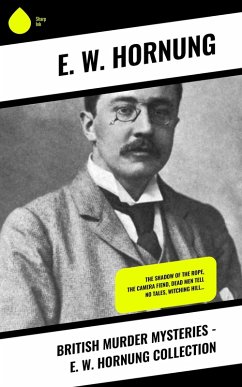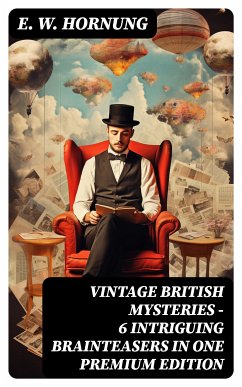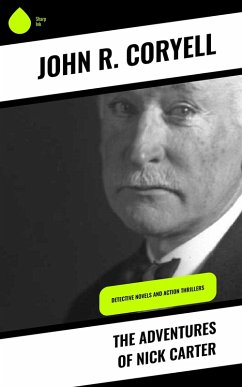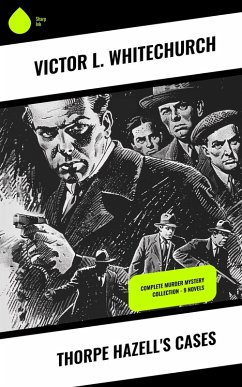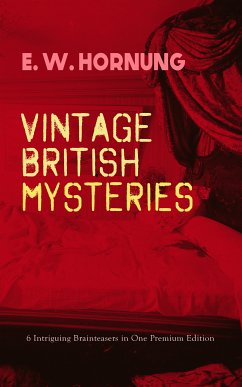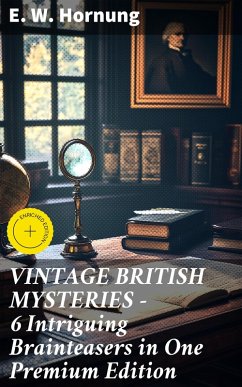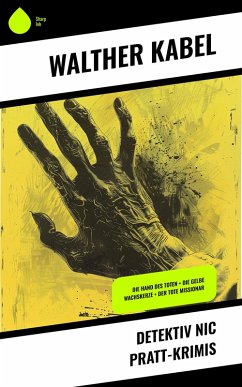
Hornung Thrillers (eBook, ePUB)
Dr. John Dollar's Mysteries & Adventures of A. J. Raffles, A Gentleman-Thief, The Criminologists' Club, Murderer ...
Versandkostenfrei!
Sofort per Download lieferbar
1,99 €
inkl. MwSt.
Weitere Ausgaben:

PAYBACK Punkte
0 °P sammeln!
In "Hornung Thrillers," E. W. Hornung deftly weaves a tapestry of suspenseful narratives that capture the reader's imagination. This collection highlights his signature blend of intricate plotting, psychological depth, and vividly rendered characters, exploring themes of morality, ambition, and the human condition. Hornung employs a stylistic flair reminiscent of the fin-de-siècle literary movement, utilizing sharp dialogue and atmospheric descriptions that immerse the reader in the thrill of crime and consequence. Each tale serves as both a gripping adventure and a probing examination of the...
In "Hornung Thrillers," E. W. Hornung deftly weaves a tapestry of suspenseful narratives that capture the reader's imagination. This collection highlights his signature blend of intricate plotting, psychological depth, and vividly rendered characters, exploring themes of morality, ambition, and the human condition. Hornung employs a stylistic flair reminiscent of the fin-de-siècle literary movement, utilizing sharp dialogue and atmospheric descriptions that immerse the reader in the thrill of crime and consequence. Each tale serves as both a gripping adventure and a probing examination of the darker aspects of human nature, appealing to aficionados of classic detective fiction. E. W. Hornung, known primarily for his creation of the gentleman thief A.J. Raffles, draws on his experiences as an Englishman of the late 19th century to infuse his narratives with authenticity and a sense of social commentary. His close relationship with Arthur Conan Doyle, his own fascination with crime, and the complexities of Victorian society undoubtedly influenced his development as a writer. Hornung's literary background coupled with a deep understanding of human motivations gives his thrillers an enduring relevance. "Hornung Thrillers" is highly recommended for readers yearning for a captivating exploration of crime and character. Hornung's unique perspective and masterful storytelling promise not only excitement but also a thoughtful reflection on the intertwining of justice and villainy, making it a worthy addition to any literary collection.
Dieser Download kann aus rechtlichen Gründen nur mit Rechnungsadresse in A, B, BG, CY, CZ, D, DK, EW, FIN, F, GR, H, IRL, I, LT, L, LR, M, NL, PL, P, R, S, SLO, SK ausgeliefert werden.





